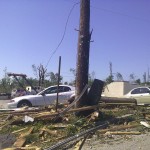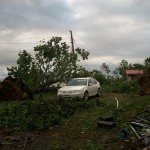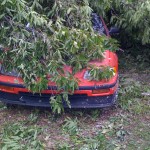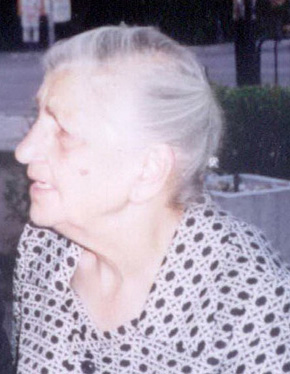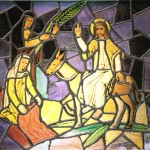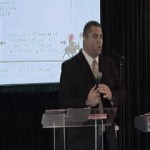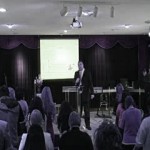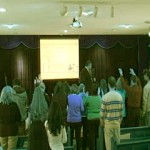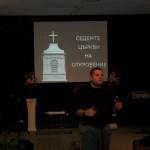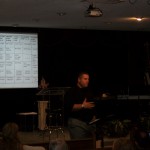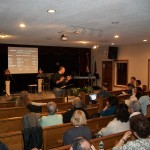Cleveland After the Storm: Day 3
Thanks to Bradley County Police who are paroling our area and letting in only residents.
Have not seen many rescue workers, but people are cutting and burning trees everywhere.
No power, no communications, no sign of insurance people.
Cleveland After the Storm: Day 2
Thanks to Pastor Jamie and Judie Jacobs who came to visit is at Crawford SE today.
Cleveland After the Storm: Day 1
We will be updating you frequently. Please, do not go rubbernecking!
Praying for Cleveland, TN
ALIVE
“When I call to remembrance the unfeigned faith that is in thee, which dwelt first in thy grandmother Lois, and thy mother Eunice; and I am persuaded that in thee also.”
2 Timothy 1:5
My Grandma, Todorka Mindova, was one of the first Sunday school teachers in the Bulgarian Pentecostal Union. After successfully graduating from a training course in the city of Sliven led by Donka Kinareva and personally organized by Dr. Nicolas Nikolov, she was allowed to minister in the denomination. But for grandma, the faith was more than teaching or a sermon. It was life. Many Bulgarian Pentecostal ministers can testify to the effectiveness of her ministry. And for her constant fasting and thousands of answered prayers I could write a book.
But far more interesting for me as a child was the fact that being a Sunday school teacher, Grandma never tried to preach to me. In the hardest moments of life she would only confess these words, which I have remembered from my childhood: “We serve a living God.” More was not needed. For Grandma preached with her life. Read more
GOOGLE THAT
Download: MPG 133MB
Palm Sunday in Chicago
Revelation Revival
We just returned from a week long revival on the book of Revelation with the Bulgarian Evangelical Church of God in Chicago. We were able to cover the whole book in a verse-by-verse expository setting and finished with a great service on Palm Sunday exploring Jesus’ entrance in Jerusalem and its meaning for the fulfillment of the Messianic prophecies. The event was covered by local Bulgarian press and attended by various churches in Chicago. We are grateful for the opportunity and are prayerfully considering a larger event for Bulgarian youth in the area later this year.
Michael W. Austin: Wise Stewards
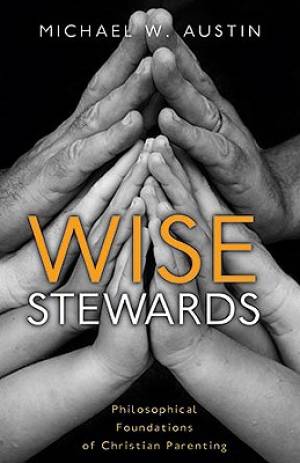 Review by Kathryn N. Donev, LPS/MHSP, NBCC
Review by Kathryn N. Donev, LPS/MHSP, NBCC
Wise Stewards begins with the philosophical question “What gives meaning, purpose, and value in life?” But don’t let the philosophical focus of this book scare you away. One of the author’s main accomplishments in the text is his ability to present this concept in a manner that is more of a challenge to our way of thinking than to our intellectual ability. This unspoken challenge is for parents to, regardless if biological or not, obtain a personal theory of a more suitable Godly parenting style rather than relying on unstructured notions of parenting. Austin does not simply discuss key virtues for the Christian family in an abstract way, but intends for the reader to integrate the ideas into a comprehensive framework that can then be used as a resource to enhance their parenting skills. This goal is apparent in every chapter that concludes with a section of questions for reflection and application.
Austin makes sure to clarify early on that he believes in moral realism. Additionally, he begins with a disclaimer that his suggestions are not to replace scripture. I appreciated both of these points. In today’s post modern society, this is a rare attribute in publications related to parenting, which should be valued. The author invites the reader to join him on a journey into becoming a better parent, a journey that will be guided by Biblical truths. If there was one sentence that could sum up the entire book it would be the following: “I seek to develop a sound understanding of the parent-child relationship by combining biblical, theological and philosophical reflections in order to construct an everyday ethic of parenthood that is distinctly Christian.” Finally we have someone who is not afraid to take a strong stand on Christian values. The way Austin opens himself at the onset of this undertaking is inviting and encourages the reader to maintain an open mind to the views that follow.
Wise Stewards has a distinctly philosophical approach to parenting, an approach that may turn away some readers but let me ask the question, should we not all strive to be philosophers and lovers of wisdom? Why does philosophy threaten us so much? Why do we tend to think that remaining in the dark is easier than facing the truth? This book sheds light on the often neglected area of parenting. Unfortunately it has come to the point that parents have to be reminded of their biblical roles. It is not a suggestion to raise your child up in the Lord but a mandate. Austin does a great job of reminding us this by addressing the need for Christian ethics for parents and insists that wise parents must view themselves as stewards of their children. He addresses basic values every parent should already be teaching their children; however after reading about Austin’s thoughts related to humility and frugality, one can’t help but think new thoughts about these basic values and how they relate to parenting. One’s view of a parent and parenthood will definitely change after reading this book. We cannot afford to be unwise any longer.
The call at the end of book is extremely thought provoking. Wise Stewards challenges parents to be exactly that, wise stewards, and calls them to restore the home to be the center for spiritual life and a “sacred place” for worship and study. It is sad we have to be taught what has become a foreign concept that for my generation used to be a given. I remember family meals would be together, around a dinner table and would begin with prayer and end with having to ask to be excused. In the modern family of today’s society most do not even have a dinner table, or “the altar” as Austin describes. This concept is no longer the center of family values. The home is no longer the center for learning or spiritual development. Austin makes a compelling case that parents who are acting as wise stewards must not bow to societal pressures but must live up to Godly standards.
Wise Stewards is more than just a great read for all levels of readers; it is a great tool for parents of all parenting styles. Yet it is not good enough to read this book and leave it on your shelf to show how great of a parent you are, you must be ready and willing to apply these ethical principles of forgiveness, patience, compassion and so forth. You must be a parent willing to embrace a Godly form of discipline. If used correctly, Wise Stewards could change a family forever in which the earthly home is restored to that place of shalom providing a reflection of our heavenly home.
Walter Brueggemann: Divine Presence Amid Violence
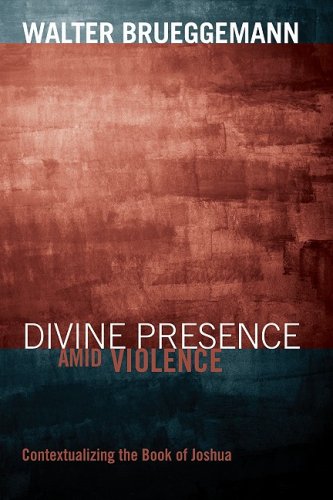 Review by Dony K. Donev, D.Min.
Review by Dony K. Donev, D.Min.
To begin this review quite honestly, I chose the text because of the difficult dilemma it was attempting to resolve, namely violence and the Bible and even more specifically violence and war as ordered by God. The second factor that influenced me was the author. If someone can offer a reasonable apologia on the subject, it is Walter Brueggemann. Of value to my choice was also the perfect timing of the book with the war in the Middle East.
Divine Presence Amid Violence makes clear that aggression in the Bible, and more specifically, aggression that “comes” from God, is not to be against the people, but against the chariots and horses. In the Joshua context, they are the tools used by the evil empire to oppress people and use their labor while holding them in fear. Thus, Yahweh’s command is not to destroy peoples and nations, but to destroy the evil empire that oppresses them through destroying its tools of oppression. This is evident on many occasions in the book of Joshua where cities and ethnos are left untouched by the destruction of Israel’s attack.
One, perhaps shocking, aspect in Brueggemann’s apologia comes in the opening chapter, which deals with meaning and interpretation of the Biblical text before approaching a series of narratives from the book of Joshua dealing with violence in the Old Testament as an order from God. This however, does not give enough reason for the statement in the second chapter that, “It is clear that this text, like every biblical text, has no fixed, closed meaning.”
Brueggemann further asserts that the role of God in the concurring of the Promised Land is merely revelatory. And not just in any context of revelation, but the one of the Land of Promise given to Israel by the God of the Exodus. The command of Yahweh refers to the horses and chariots as tools of an evil empire, the same tools with which Egypt and Pharaoh attempted to stop the Exodus of Israel at the Red Sea. It is from the horses and chariots that the liberated Israel must free the Promised Land, not from people or nations.
A disagreement with Brueggemann for the fundamental Bible scholar here is a must. For it is quite obvious to the reader, that a narrative has a definite and fixed meaning within its own historical context. And while the interpretation of a given passage through various other historical moments or cultural aspects may vary its essence as a piece of history remains intact.
Brueggemann raises an interesting proposal in the conclusion, suggesting that the modern church is often embedded in the culture of chariots and horses, rather than opposing it; thus counter parting a number of modern interpretations of the Kingdom of God and suggesting that with our theology and actions we as people of God are to be liberators from the tools of oppression and not their enforcers.







